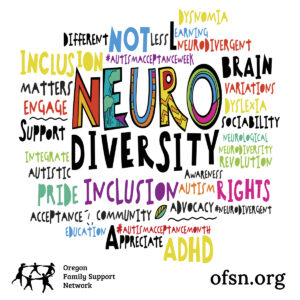Mindfulness for Parents of Neurodivergent Children: A Calming Practice in a Stormy World
Mindfulness for Parents of Neurodivergent Children: A Calming Practice in a Stormy World

Parenting is never easy, but for those raising neurodivergent children—kids who experience the world through the lens of autism, ADHD, anxiety, sensory processing challenges, or other differences—the demands can feel constant and overwhelming. From managing daily routines to navigating meltdowns, advocating in school meetings, and fielding outside judgments, the weight parents carry is heavy. Over time, this persistent stress can lead to parent burnout, a state of emotional and physical exhaustion that can leave caregivers feeling drained, disconnected, and unsure of how to keep going.
This is where mindfulness becomes more than a trendy concept—it becomes a lifeline. At its core, mindfulness means bringing your full attention to the present moment with curiosity and compassion. It’s not about forcing calm or silencing every thought. Instead, it offers parents a way to slow down, notice what’s happening inside and around them, and respond with intention rather than reaction. For parents of neurodivergent children, mindfulness isn’t about fixing a situation or “getting it right.” It’s about staying grounded enough to move through hard moments with greater clarity and care.
One of the most powerful benefits of mindfulness is how it helps regulate a parent’s own nervous system. When a child is melting down, anxious, or hyperactive, a parent’s instinctive stress response can spike. But with mindfulness, even a few deep breaths can help calm that internal alarm system. This not only helps parents feel more in control—it also models co-regulation for their child. Mindfulness also creates a crucial pause between a trigger and a reaction. That pause, even if only a few seconds long, gives space to choose a more thoughtful response instead of reacting from exhaustion or frustration.
In addition to reducing stress, mindfulness can ease the harsh self-criticism so many parents carry. Raising a neurodivergent child often means facing external judgment and internal guilt—about not doing enough, not staying patient, or not meeting every need. Mindfulness fosters self-compassion, reminding parents that they are human, that this work is incredibly hard, and that doing their best is enough. It also strengthens emotional awareness, allowing parents to better understand their own feelings as well as the emotional landscape their children are navigating. This emotional insight can make a huge difference in communication and connection.
Importantly, mindfulness brings attention to moments of joy that might otherwise go unnoticed. Amid the chaos, there are small wins, gentle hugs, spontaneous laughter, or a moment of eye contact that says, “I see you.” Mindfulness helps you slow down enough to savor those moments, which can be healing in themselves. And you don’t need to set aside an hour a day to reap these benefits. Mindfulness can be woven into the everyday: three deep breaths before responding to your child, noticing how the sun feels on your skin during a walk, or taking a quiet moment before sleep to reflect on one thing that went well that day.
In the end, mindfulness isn’t a magic solution. It won’t eliminate the challenges of parenting a neurodivergent child, but it can help lighten the emotional load. It offers a path back to yourself—your breath, your presence, your resilience—so that you can show up for your child not from a place of burnout, but from a place of grounded compassion. You deserve that. Your child does too.
If you’re looking for peer support, local summer resources, or someone to talk to, contact us at OFSN’s website or call us at 1-833-732-2467.
You’ve got this—and we’ve got you.
